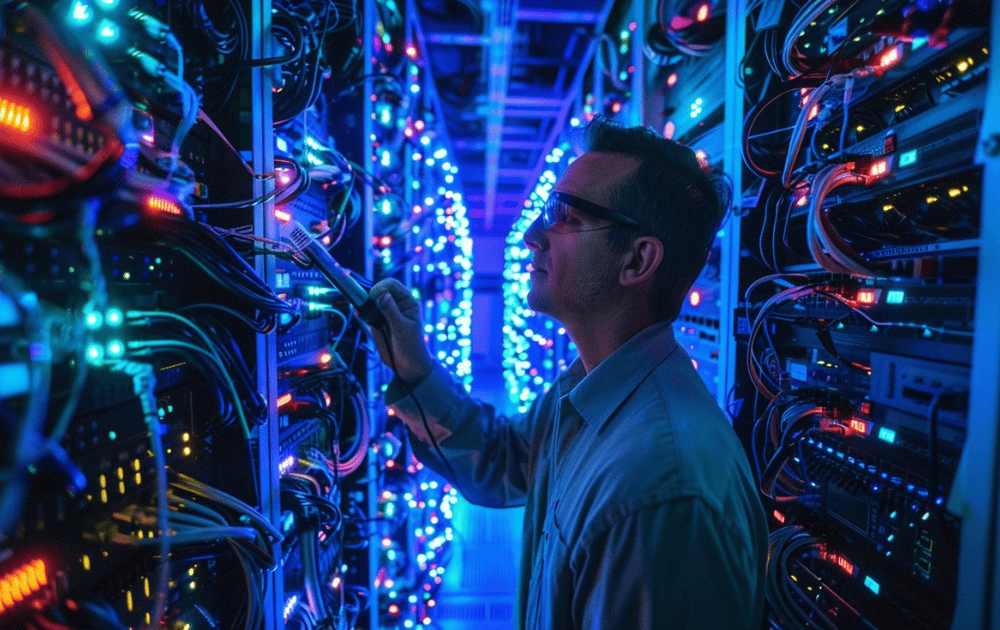In the chemical industry, safeguarding data is paramount to ensure operational continuity and protect sensitive information. By comprehending the significance of data security and acknowledging the risks specific to the industry, companies can proactively enhance their security measures.
Understanding the Value of Data Security
Data security plays a vital role in the chemical sector, safeguarding intellectual property, trade secrets, and confidential information. Ensuring the integrity and confidentiality of data not only safeguards the company's competitive advantage but also maintains compliance with regulatory standards.
Risks Faced by the Chemical Industry
The chemical industry is susceptible to a myriad of risks that can compromise data security, including cyberattacks, industrial espionage, and insider threats. These risks pose significant challenges to the industry, necessitating robust security protocols to mitigate potential breaches and safeguard critical assets.
In recognizing the value of data security and understanding the unique risks faced by the chemical industry, organizations can take proactive steps to fortify their security posture and mitigate potential threats effectively. By prioritizing security initiatives, companies can better protect their data assets and uphold the integrity of their operations within this critical sector.
Need for Enhanced Security
In the realm of the chemical industry, the imperative for bolstered security measures is becoming increasingly apparent. This urgency is fueled by the constantly evolving threat landscape and the stringent regulatory requirements that dictate the need for fortified security protocols.
Evolving Threat Landscape
The chemical industry operates in a domain where cyber threats are advancing at a rapid pace. Cybercriminals continuously refine their tactics, seeking to exploit vulnerabilities in IT systems to gain unauthorized access to sensitive data. From ransomware attacks to intellectual property theft, the risks faced by the chemical sector are multifaceted and ever-evolving.
Regulatory Requirements Driving Security
Moreover, regulatory bodies are mandating stricter security standards for the chemical industry to safeguard critical data and infrastructure. Compliance with regulations such as the Chemical Facility Anti-Terrorism Standards (CFATS) and the European Union's REACH Regulation necessitates comprehensive cybersecurity frameworks to mitigate risks and ensure data protection.
Acknowledging the evolving threat landscape and embracing regulatory mandates is essential for organizations in the chemical industry to strengthen their defenses against cyber threats. Implementing robust security measures, staying updated on emerging cybersecurity trends, and fostering a culture of vigilance are crucial steps in safeguarding sensitive data and maintaining operational resilience amid evolving security challenges.

Future of Security in the Chemical Industry
Looking ahead, the future of security in the chemical industry is intertwined with the adoption of advanced technologies and collaborative efforts aimed at enhancing industry-wide security measures.
Embracing Advanced Technologies
In order to stay ahead of cyber threats and safeguard critical data, the chemical industry must embrace cutting-edge technologies that offer enhanced security capabilities. Advancements in technologies such as artificial intelligence, machine learning, and blockchain are increasingly being leveraged to bolster cybersecurity defenses.
One key technology that holds promise for the chemical industry is artificial intelligence (AI). AI-powered security solutions have the capability to analyze vast amounts of data in real-time, identify potential security breaches, and automate responses to mitigate risks. By incorporating AI into their security frameworks, chemical companies can improve threat detection and incident response, thereby strengthening their overall security posture.
Collaboration for Industry-Wide Security Efforts
Recognizing that cybersecurity threats transcend individual organizations, collaboration and information sharing within the chemical industry are essential for driving comprehensive security efforts. Establishing industry-wide initiatives and partnerships enables companies to pool resources, share threat intelligence, and collectively develop best practices to combat evolving cyber threats.
Industry collaborations also extend beyond individual companies to include partnerships with government agencies, cybersecurity experts, and affiliated industries. By fostering a collaborative ecosystem focused on cybersecurity, the chemical industry can benefit from shared knowledge and expertise, as well as coordinated responses to emerging security challenges.
Together, by embracing advanced technologies and fostering collaboration for industry-wide security efforts, the chemical industry can proactively address cybersecurity risks and build a resilient security framework that safeguards critical data and infrastructure against sophisticated cyber threats.
Don't Wait! Secure Your Cincinnati Business with LK Tech
In today’s world, the chemical industry faces unprecedented security challenges, making it crucial for companies to adopt more robust security measures. At LK Tech, we understand the unique risks this sector encounters and are dedicated to providing tailored IT solutions in Cincinnati, Ohio that enhance security and compliance. Our team of experts leverages cutting-edge technology and industry best practices to protect your operations from cyber threats and data breaches.
We pride ourselves on delivering exceptional customer service, ensuring that our clients receive the support they need every step of the way. Let us help you strengthen your security framework and safeguard your valuable assets. Don’t hesitate to contact us today to discuss how we can tailor our services to meet your specific needs!


